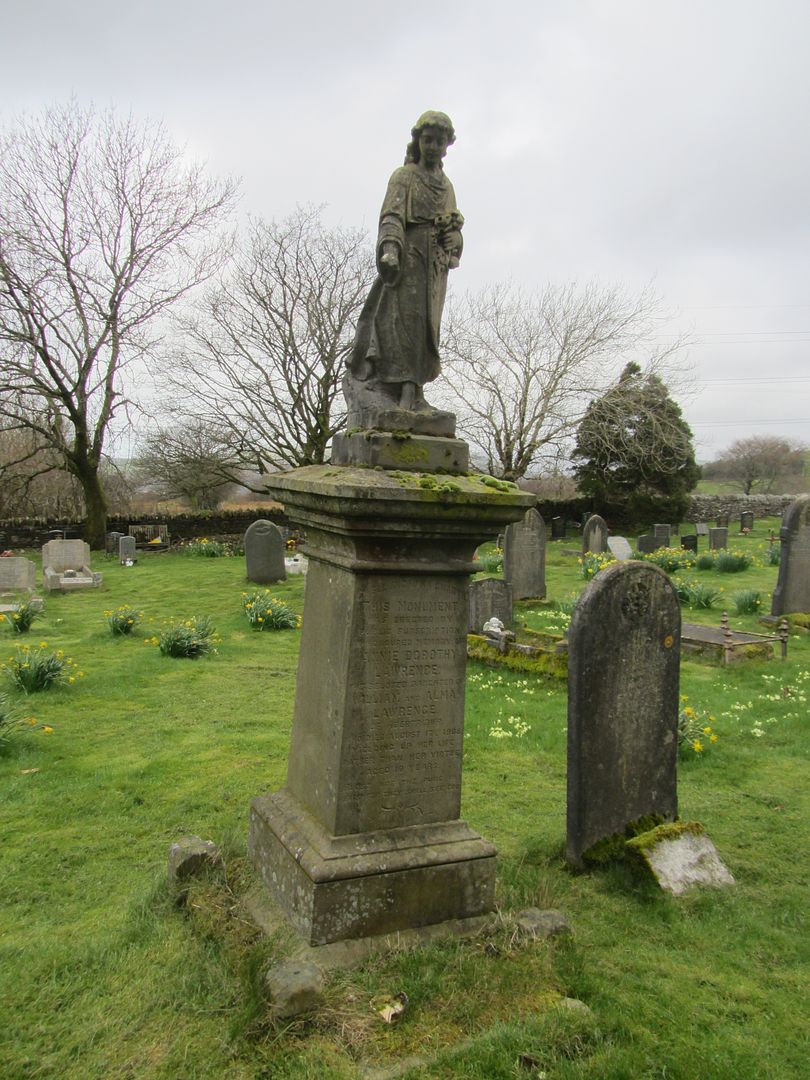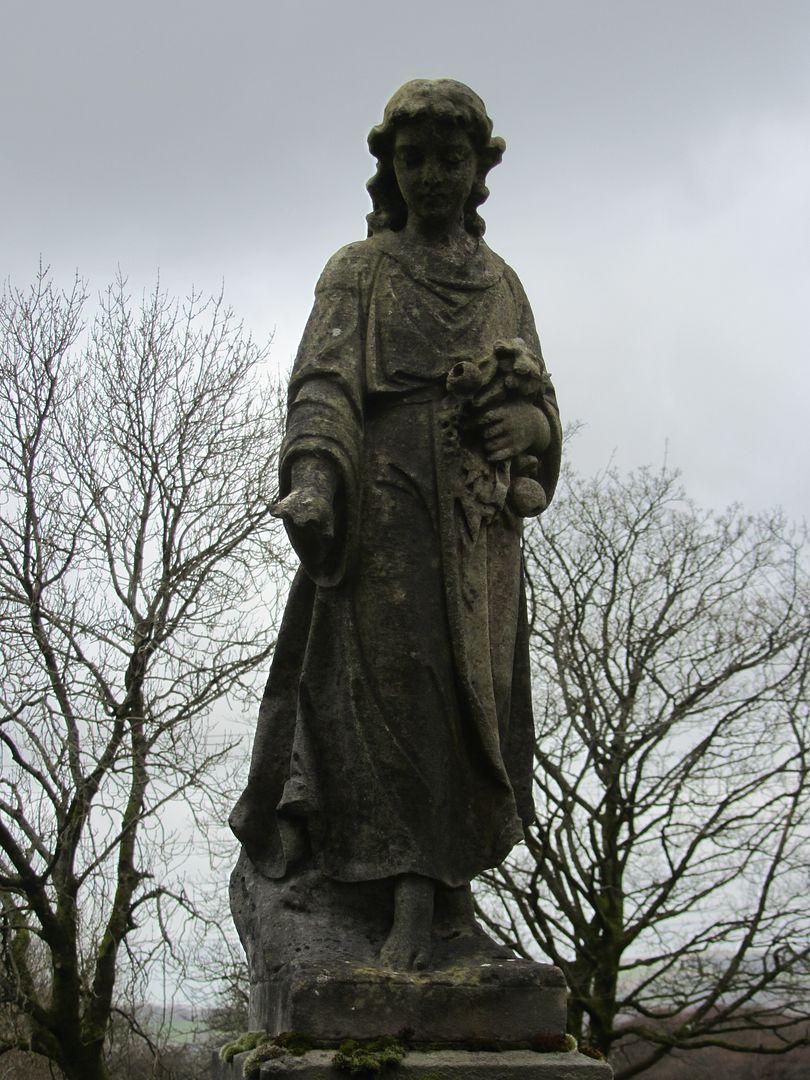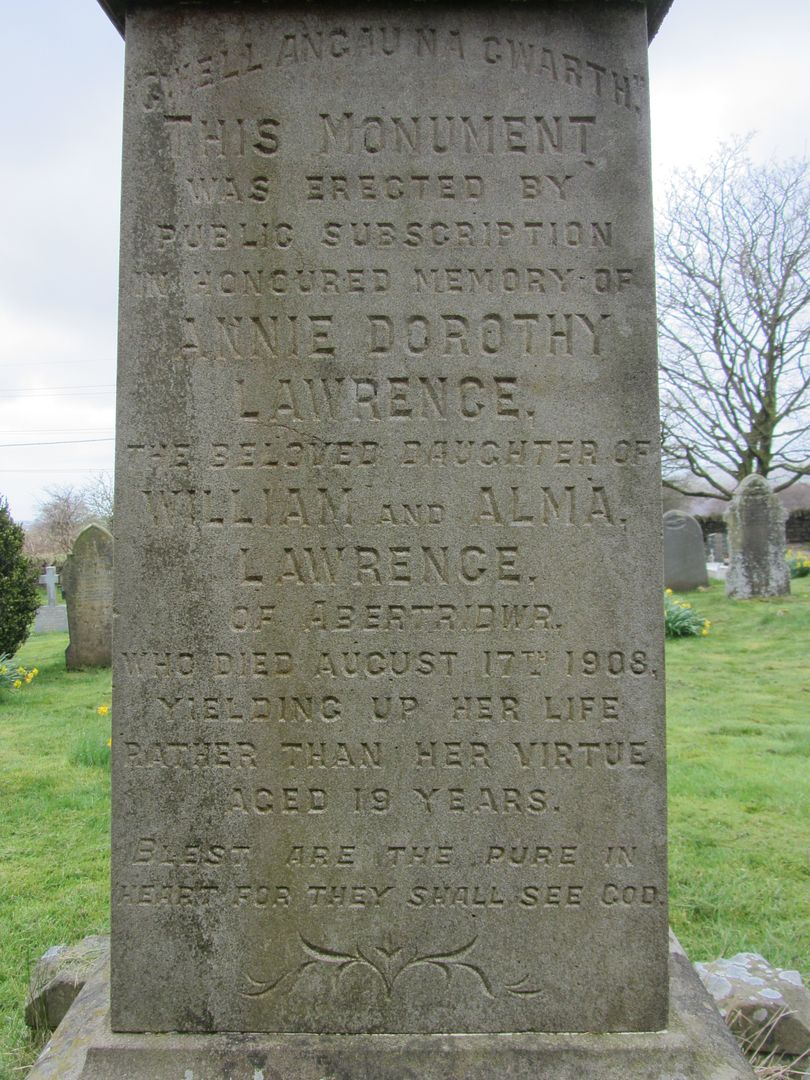An impressive piece of research there, Berenice. Just one point -- Abertridwr is just outside Caerphilly -- within walking distance of Caerphilly town centre, whereas Pontypridd is about ten miles away, over an arduous mountain, which is why he turned himself in at Caerphilly police station.
I'm not sure whether the house at 5 Aberfawr Terrace is the original one in which the murder took place. I'm no expert on architecture, but it looks more post-World War I to me. If it is the original building, it was a fairly new construct in 1908, and with its bay window, considerably better than most of the houses in Abertridwr of that time. He may have been only renting a room, but it was certainly a comfortable and impressive house by the standards of the time. It was even quite grand compared to the one in Cadoxton that he was born in, which also still survives.
I live in Abertridwr, and the murder is certainly not forgotten. People still discuss it regularly. There is a memorial erected to his victim in the parish church yard. It was paid for by public subscription, and it is still today the largest and most impressive memorial in the the entire cemetery.
The National Library of Wales maintains a substantial and searchable online collection of newspapers. The case received widespread coverage at the time. According to the Cardiff Times of August 22nd 1908, a cache of letters from Dorothy Lawrence addressed to Collins was discovered at Collins' brother's house in Cadoxton, so it sounds as though he turned himself in to the police station one step ahead of having his collar felt
newspapers.library.wales/view/3434284/3434290/162
What I've read in hose papers is that Collins had gone to Cardiff a few days earlier and attempted to buy a gun. Unable to afford one, he bought two stiletto knives instead (wouldn't one have been enough?), which to my understanding, are intended purely for stabbing, and are not much use as cutting tools. With these concealed on his person, he went into the kitchen where Dorothy Lawrence was polishing boots, and demanded "a kiss" -- can we assume this is a euphemism for rather more than that? When she refused, he killed her. And some people around here try to insist it wasn't premeditated!
Another curious feature, one which seems rather inhumane, is that he was executed on the stroke of eight o'clock, by the bell of the city hall clock. First of all, central Cardiff was obviously a much quieter city in those days. Just outside the centre of the city (it's an old jail and was originally constructed in open fields back when Cardiff was little more than a glorified fishing village), you certainly couldn't hear the city hall clock from the jail at eight o'clock these days. But what it means is that they got him onto the scaffold, put the bag over his head, and the noose around his neck, and then just kept him standing there in terror, waiting for the clock to chime.
It plays the same chimes as Big Ben, so he'd have been standing there, hearing the tune, knowing this was his final minute on earth. Then, after the tune has finished, there's a pause of several seconds before the first "bong" of the hour is rung. I have very little sympathy for him, but I do on that point. That seems cruel.
I don't think executees were buried with possessions. His medal and locket would have been removed and returned to his family; presumably, his relatives in Cadoxton.




